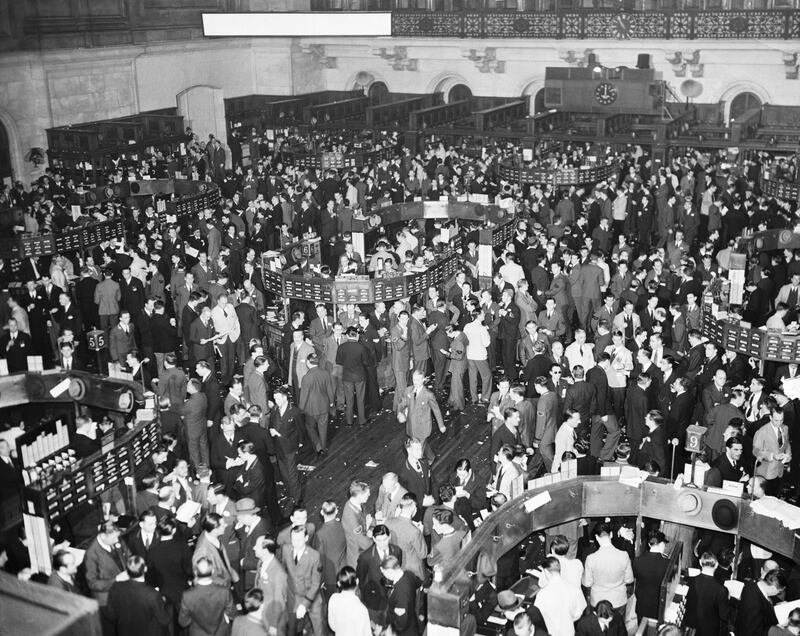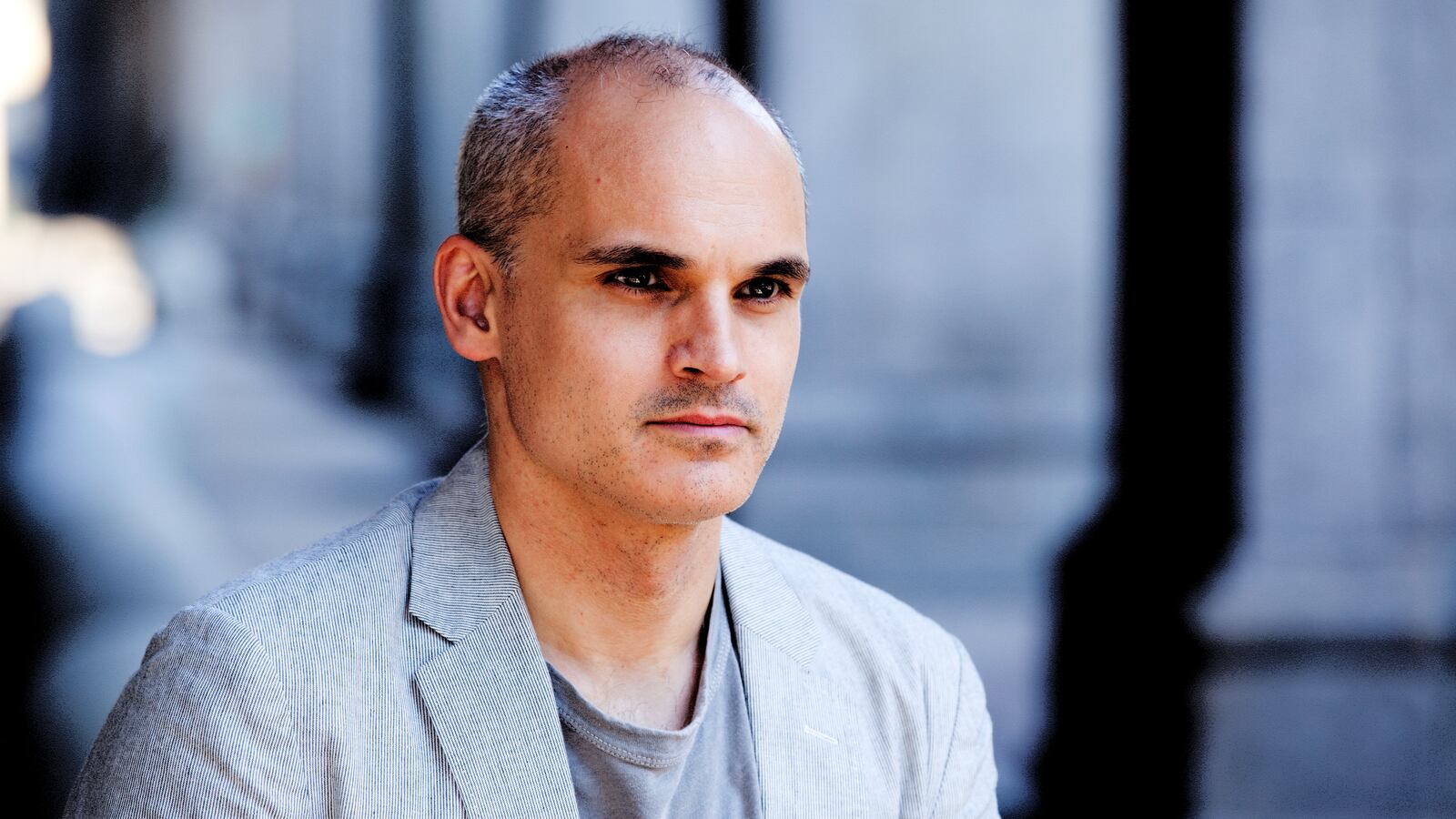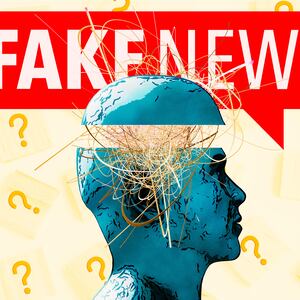These are dubious times. Everyone knows there is a problem, but mixed messages abound about what, exactly, the nature of that problem is and how to solve it. The abhorrent phrase “fake news” has entered the lexicon, scores have abandoned science in favor of YouTube, and just about the only thing anyone can agree on is that the story spun by politicians and the media—at least the story told by those on the other side (we like to pick and choose which liars we believe)—is not to be trusted.
Trust in the narrative. The very concept has ceased to be. There was a time when, for the most part, people believed in some semblance of a narrative. America was good. You could put your faith in the company. The great men of industry had all our best interests in mind. Your pension was safe in the invisible, all-mighty hands of the Market. Amen.
This was nonsense, of course, and there have always been those who recognized and pointed out the holes in the narrative plot. Hernan Diaz—whose debut novel, In the Distance, was nominated for a Pulitzer and whose follow-up, Trust, has just been longlisted for the prestigious Booker prize—is among those who have seen through the hooey.
“Perhaps because I have an academic background,” he explained via Zoom, “I think of things diachronically and historically a little bit, and whenever I see sort of a fissure or a break in what would otherwise be a seamless wave of narratives through history, to me that's a very productive thing.”
Born in Buenos Aires and raised in Sweden before immigrating to Brooklyn, Diaz’s wandering perspective has perhaps afforded him the detached vantage necessary to see the narrative of his adopted home for what it is.
“The United States for me was initially sort of a fictional experience, something that I encountered—like all of us who didn't grow up in the States—through film, literature, rock and pop music, jazz, but mostly fiction. There is something inherently fictional about the United States.”
The fictional or doubtful quality of the American narrative is central to Diaz’s work. In his first novel, In the Distance, he recast the mythology of the American Western by placing the narrative on the shoulders of a softhearted immigrant rather than a gun-toting cowboy. With his latest work, Trust, Diaz looks at arguably the most looming of American myths: the tall tale of the Great Man of Finance.
When I asked him about these legendary people, he gave a sardonic laugh.
“It’s not people—it’s men. It’s always men. That is something that bothered me. It’s something that merited some sort of intervention: the fact that all these narratives—these self-aggrandizing myths—were all written by men.
“I think there is a continuity again between these two moments in American history and these genres that has to do with the fetish of the individual will. This kind of can do attitude of American culture that I find admirable. But on the flip side, there is this notion of a supreme individual and the glorification of individuality, even if it is against institutions.
“You see it in the western all the time: Sometimes you have to take justice in your own hands, even if it goes against the law. That’s a favorite paradox of the genre. I think something similar applies to the individual will in these narratives of finance and power. The world seems too small for these men—of course this is just a myth, right?—so they need to push the boundaries and sort of reinvent an institutional framework that they find constrictive. So I think this is part of that myth. And of course it's a womanless world. There are absolutely no women.”
With Trust, Diaz sets out to address this historical negligence by examining the structure of how women were erased from the narrative. Set in the early 20th century, it follows what seems to be the story of financier Andrew Bevel as told through the lens of four separate “manuscripts” penned by different authors. As the reader progresses through these narratives, the realities of the women behind—or should I say obscured by—Bevel are gradually revealed. It’s an experiential read that asks the reader to put in work by filling in the narrative gaps.
During the second chapter, for example, it’s not immediately clear if you’re reading a finished book at all. I myself initially thought that the advanced copy I was sent was so advanced that the entire section was still forthcoming. Then it dawned on me that the fragmented lines and notes I was reading were, in fact, the book.
“I like to mess with the boundaries of what is expected of a text and what it does, almost engaging the reader physically,” Diaz explained. “That’s why the table of contents is at the beginning. I was hoping people will go back and check. The active physical moment of reading is important to me. And that second section was a big risk—I hope this doesn't sound too self-aggrandizing, too presumptuous of me to say—but it was important for me to take some risks, and I think the second book is one of the biggest gambles because it’s very grating. It’s a tough voice to take, you know. It's short, and that's why the table of contents plays such an important role because I was hoping the reader will go back and say, Oh, this guy's a douchebag. Oh, but OK. It's short, and there's a lot of blank spaces. I think I can hang in there.
“To a certain extent with the first section I wanted to accumulate this sort of capital of goodwill, and then totally blow through it with the second section, and then rebuild it in the third and fourth books. But I was also trying to engage the reader in what happens to us when we're presented with these narratives of power and money that I think are designed to wear us down as readers. Just think of your credit card statement. It's meant for you not to read it. Very overtly. It’s expelling you from the text. That's the way it's written. Even the layout, the design, it's just do not read me. And that to me is an essential part of the rhetoric of power: offering a narrative that becomes more valid the more illegible it is. The less sense you can make of it, the more it tires you, the more legit it must be because important things are boring and impenetrable.
“If you're writing a commercial novel, that’s suicide! But it was important that that experience be in the book, because it is a book about power, and I think power works this way.”
Trust in the narrative. That’s what power demands. Without it, the myth loses its potency. The story ceases to be spellbinding. Power requires faith in the terms of agreement.
Diaz gives an enthusiastic nod. “The terms of agreement are very important to me. If we may expand on that metaphor, just as we scroll through them when we install, you know, the new Mac OS—we just click when it might be a Faustian contract for all we know—I think whenever we read anything we accept terms and conditions, and we expect certain discourses to be closer to truth, whereas others are totally excused from that relationship to truth, and that is something that we sign on for usually without thinking about those terms. So the book ostensibly is asking the reader to read the terms and conditions—to reassess what the terms and conditions were for each previous section.
“There was a problem when I was writing. I knew always that it would end with a journal, and the question to me was always, Well, why hadn't anyone ever seen it? Why hadn't anyone read it? So I read several real journals from real women who were married to real tycoons from those times. For one of them I went to this archivist and the archivist tells me—and I put this in the novel—Good luck, her handwriting is impossible. And I was like, Oh my god. This is exactly it! She just has a bad hand. And nobody took the trouble to figure it out.
“Here is this woman still not being heard after a century. Nobody is reading her stuff to this day. And that was a very eye-opening moment: the extent to which women's voices in general—but in particular in these narratives of power—they’re just not being listened to. And that became a very essential part of the project.”
As timing would have it, my chat with Diaz took place the day after the Supreme Court sank Roe v. Wade. When I mentioned it, his face fell and landed somewhere between anguished and angry.
“I don't feel that my voice is the one that needs to be heard in this debate. I think women are articulating this in a very eloquent and powerful way. In the context of [Trust], women were not allowed to trade at the New York Stock Exchange. They were not allowed to trade in general. It was simply not an option. It was not allowed. It was not unfriendly—it was unthinkable.

Panorama of the New York Stock Exchange. Photograph, 1940's.
Bettmann/Getty“It’s the ’20s and ’30s, where women really for the first time are able to join the white-collar labor force. That’s a big moment in the book—that a woman could join or aspire to join the middle class without having to marry into it. That is a big shift that happens around that time.”
Present too in Diaz’s novel is another group that has been written out of the American narrative: that of the anarchist.
“The history of anarchism in the U.S.—and this all made it into the novel—is all so fascinating,” Diaz explained. “It was completely erased. I had access to pretty comprehensive archives in the United States and Italy. There is so little about the anarchist movement in the U.S. It has all but vanished. I found just fragmented microfilm collections of one magazine at the New York Public Library. There’s very, very, very little material. Around the time, as the novel said, there was an opportunity for a true left to emerge in the United States, a true labor movement to emerge in the United States. And it was exterminated with extreme violence—this is a matter of record—by the Republican administrations of the time.”
In Trust, the anarchist narrative is represented by an Italian immigrant who asserts, The root of all evil, the cause of every war—god and country.
“That happens to be something I really believe,” Diaz nods. “You don't have to be a foreign policy expert to come to that conclusion. It’s pretty obvious. Given the bend toward theocracy that we're taking as a nation, I feel no remorse or fear in saying that. There are many jabs at religion throughout the book. I used to tiptoe around this, but given everything that’s going on it’s really important to speak up.”
At this point a technological paroxysm disrupted our conversation. When Zoom resumed, Diaz begged off further political dialogue. “Opinions are so overrated. I’m a novelist—who cares what I think about politics?”
Fiction isn’t harmless, declares Diaz’s anarchist immigrant character. The question becomes, then, is fiction dangerous?
“I firmly believe that fiction has palpable effects on reality. It's not just innocent make-believe that is out there as an innocuous form of entertainment. It can be that, but it’s not only that.
“A lot of the power constraints that we feel in our everyday lives are based on fiction. Think of something that is as inherent and powerful to you as your nationality. That is, at the end of the day, a collection of ideological fictions. There's nothing in it. Nothing. Think about it for a second. There's nothing that makes you American or Belgian or anything aside from what you ascribe to that identity, and that is a series of narratives.
“The old question at least since Plato's Republic is, how does art imitate life? But to me, the more interesting question now is the opposite one—how do fictions shape our perception of reality? I think it's a very real thing. It has been always—increasingly more so with the printed word; increasingly more so with mass media; increasingly more so with social media. But the way in which narratives have material effects on our lives is to me a source of endless fascination.
“And the book was written during a time when reality has been commodified, our lives have been commodified, and we willingly have commodified our lives and turned them into narratives for some sort of profit. It could be monetary profit. It could be symbolic profit. And at the core of it all is money, which is also a fiction. Money is all make-believe. It’s just that we have all agreed on the terms and conditions, more or less willingly, or more or less unconsciously. We have all agreed to play this game. But it is a game. It is fictitious. There’s nothing that ties money to real value other than a narrative. Or the trust that we invest in that narrative.”






